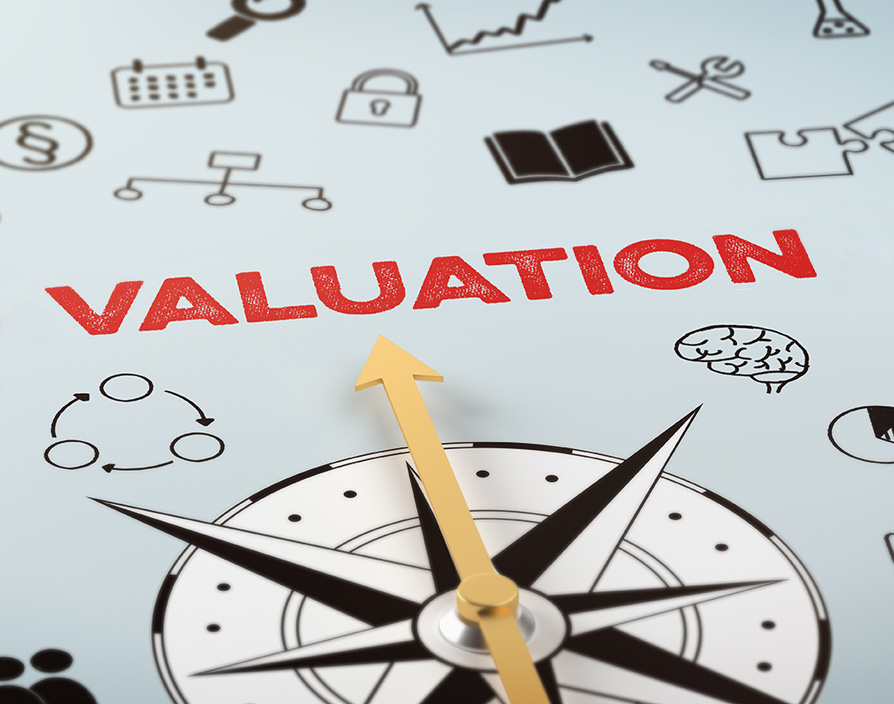In this article, Paul Dodgshon, the Sales Director of Business Partnership, advises on how to avoid valuation traps and find the value of your franchise business, no matter your situation.
Finding the value of your franchise is an intimidating process if you do not know what you are doing and there are many factors that affect the value of your franchise. The main difference between valuing a franchise and an independent business is the franchise brand itself. The value of a global franchise like Burger King will be different to one like Camile Thai which currently operates fewer than 50 locations. Franchising by definition means your value is linked with the master franchise brand and every other franchisor operating under the same brand. Put simply, a brand that is seen ‘on every street corner’ adds value. However, how well your franchise is performing will also play a role.
How to value a successful franchise
Believe it or not, “Trust me we are making money” will not work for most buyers and certainly not their funders. The first thing to consider when it comes to valuing your franchise is whether the business is performing well or not. To do this, establish the net profit of your business by bringing your accounts up to date. Get both annual accounts and year to date management accounts to show a buyer what the profit is. It is hard to sell a business without these figures. A broker will then apply a multiple to this profit. The multiple depends on several factors, including the brand strength, stability of the business’s cash flow and the forecasted business growth. A profitable business is usually valued at between one and five times the net profit.
Also, if your master franchisor is selling new locations for a fraction of the price of your resale, you have to be able to demonstrate why. An existing and already profitable franchise has that income, so remind your potential buyers. Explain how long you have operated, how good your location is, how long it took you to get from a standing start of a new franchise to break-even point. A new franchise may look cheap on paper, but there’s no immediate incoming cashflow and lots of set up costs. The next step in the process is negotiation.
How to value a failing franchise
Valuing a failing franchise is a little different. Start off by finding out the total cost of a new franchise, including the price of the business and any required investment in equipment or refurbishment of the building. This is an entry point for anyone interested in that franchise. If your franchise is growing and the turnover is increasing but currently unprofitable, you will need to provide some forecasts to show that the future is looking better.
It’s not uncommon for businesses to be affected by temporary issues either. For example, roadworks can temporarily reduce footfall to the business. If you expect to recover to previous profit levels once the roadworks are done, you might take a 15 per cent discount from your valuation. You will then be expected to provide historical accounts and fully explain the situation to give the buyer a full understanding of the circumstances.
Research your industry and finding out what other struggling businesses have sold for. Whatever value you arrive at, don’t forget those additional franchisor administration costs. If that tips the balance of funds into a negative, you could also estimate the business’s liquidation value. Speak to a professional insolvency practitioner who can advise on this.
Franchising valuation traps
Whatever the reason, almost everyone in franchising reaches the stage where they want to sell their franchise. It is crucial to carefully design your business sale that you do not set unintended valuation “traps”, which could hinder the effectiveness and increase the costs of your transition.
Your buyer’s perspective is the only one that matters
It is often difficult not to see your business through rose-tinted glasses. However, look at it from a buyer’s perspective. Assume your buyer knows nothing and ask yourself, if you were buying the business, would you be offering a top price or discounting it?
Don’t leave hidden administration fees
Be clear if the administration sale costs from the master franchisor are to be paid by you. If you just Inflate the asking price without explaining why you will simply put people off enquiring in the first place. At the end of the day the profits of the business must provide the opportunity to repay a buyers total investment.
Is an offer too good to be true?
It may be difficult, but try not to be overhasty when accepting a higher-than-expected valuation. If a great valuation is provided by a broker, question how it was arrived at. If you are offered a price which seems too good to be true, it often can be unachievable.
Profit is all that matters
Another pitfall in the sales process is thinking your business is more valuable than it really is because it has a high turnover. Unfortunately, this is not the case. A franchise’s value comes from profits, not turnover. So, when setting an asking price, make sure you factor this in; otherwise, the likelihood of selling your business is massively reduced.
Free versus fee?
When it comes to having your business valued, you often have the chance to get either a free valuation or a paid-for valuation. Both have their place in the business world, but a paid valuation will go into much more detail, which is far more beneficial when it comes to something important, like selling your business.
I recommend consulting an independent business broker for advice when it comes to selling your franchise. It is also worth discussing the resale with an accountant or lawyer with experience in the franchise industry. They will be impartial and able to offer support during the negotiation discussions. By following these steps, you will be able to find the value of your franchise business, no matter your situation.

































